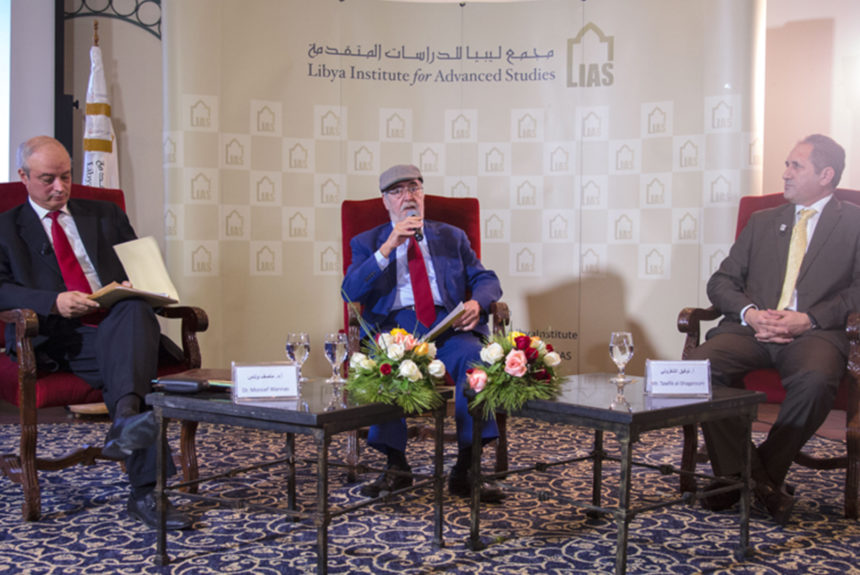
This seminar is an academic discussion, that highlighted the issue of identity, its definition, importance, and its impact on the Constitution, and in communities, and how to raise public awareness of it and disseminating that in the different media outlets.
This is all through an academic, scientific and specialized discussion, presentation of drafts and theories, as well as interventions and questions.
The significant question behind the discussion is: What is the Libyan identity, and what are its components? What is its role in obtaining stability in Libya? And where is its place in our constitution?
We hope that this discussion raises excellent results such as:
- Interventions and initial foundations for the writing of the draft of the preamble of the Libyan identity in the constitution.
- Achieving benefits at the level of raising awareness about the concept of identity, and its impact on the construction of the civil state, through published papers, in the media, and on social networks.
- Self-criticism, with a focus on raising awareness about the commonalities between Libyans, which contributes to relieving tension and peace-keeping.
- Focusing on the importance of constitutional rules and curricula and the means of education in building a political culture based on identity.
- Discussing philosophical, social, political, and national approaches.
Dissertations were as follows:
Dr. Omelez Farsi, president of the advisors at the Libya Institute for Advanced Studies gave the opening speech for the Symposium.
First Session: “Philosophical approach’” moderated by Professor Jazya Shaitir, Law Professor at the University of Benghazi. She introduced both of:
- Dr. Aref Ali Nayed, The president of Libya Institute for Advanced Studies, and his paper entitled “the concept of complex identity”.
- Dr. Najib Alhasadi, a paper named “ suspicious approach to the concept of identity”. He is a philosophy professor at the University of Benghazi.
Second session: “Social approach” moderated by Giuma Atiga and he presented both of:
- Dr. Munsef Wannes, a paper entitled “the vigilant methodology for understanding the Libyan society. He is the general director of the social and economic studies and research center in Tunis, and a sociology professor at the University of Tunis.
- Mr. Tawfik Alchagrouni; writer and researcher. Paper entitled “cultural diversity and the Libyan identity”
Third session: “comprehensive approach” moderated by advisor Marwen Tacheni and he presented both of:
- Dr. Zahi Mogherbi. Professor of political science University of Benghazi “identity crisis in Libya between local affiliations and transnational loyalties”.
- Mr. Ridda Ben Musa. A writer “identity between constancy and transformation”.
- Mr. Salem Alokly. A writer “identity between illusion and identification”.
Fourth Session: “political approach” moderated by a professor named Basem Hamida, a Professor of political science at the University of Benghazi. He presented both of:
- Professor Abdel Latif Hamida. Head of the Department of political science at the University of New England. “The past in the present: conflict over national identity and Libyan historic figures.”
- Professor Fatima Zahra, Head of Libyan women forum for peace “institutional heritage and the Libyan identity”.
The seminar was broadcast on Libya channel.





